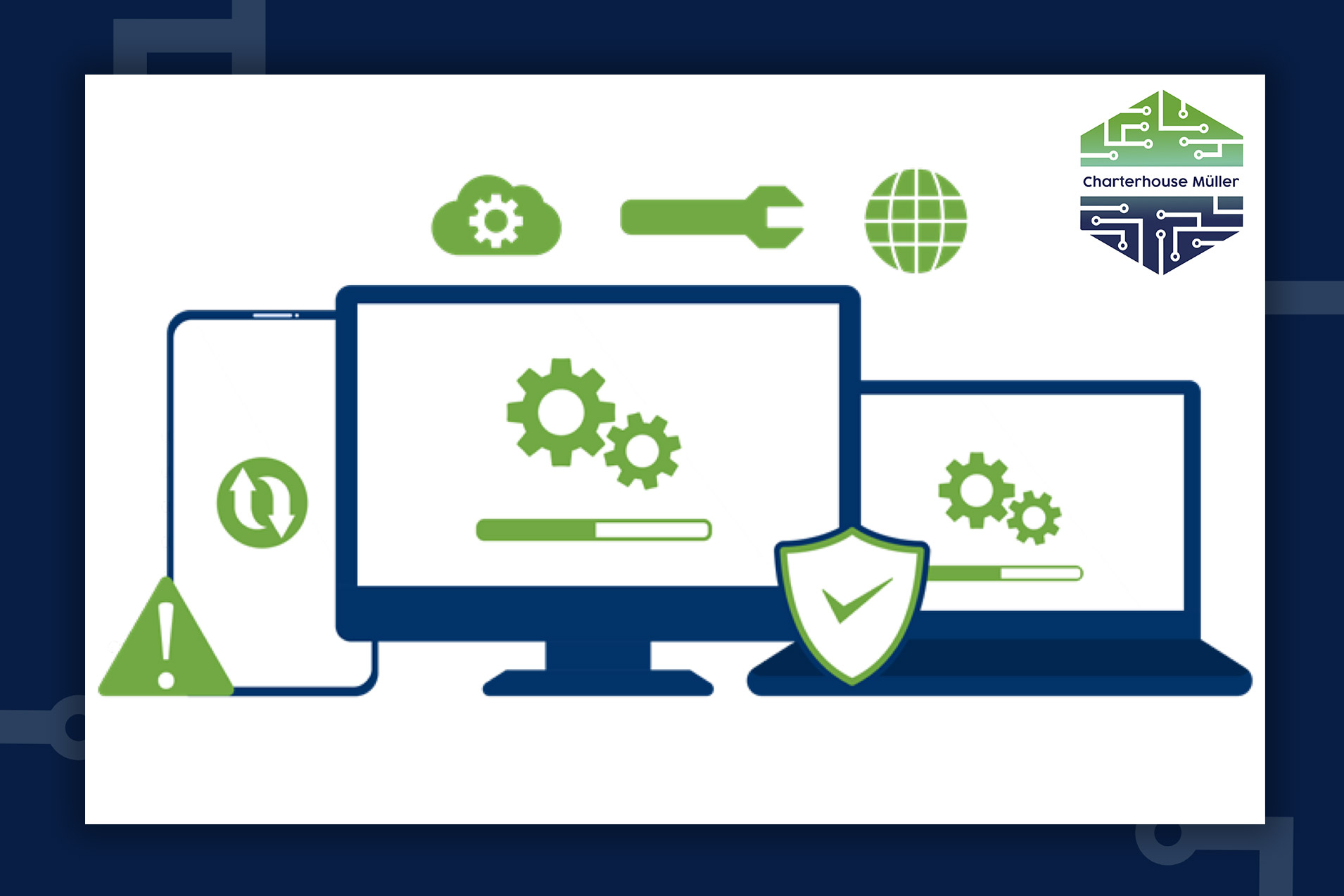
23 Feb The Circular Economy in The World of IT
If you hang around in business circles a lot, you may have heard of the phrase ‘the circular economy’. It’s a fairly common term in the sustainability world, and in recent years it’s become a big concern for businesses looking to improve their green credentials and reduce their carbon footprint. But what does it mean in practice, and how much of an impact does it have on the world of IT. As it turns out – quite a lot! So today we wanted to take a dive into the circular economy, and show you how your business could make a change.
What is The Circular Economy
In a nutshell, the circular economy is an economic system aimed at eliminating waste and the continual use of resources. Circular systems employ reuse, sharing, repair, refurbishment, remanufacturing and recycling to create a closed-loop system. This minimises the use of resource input, and the creation of waste, pollution and carbon emissions along with it. Part of this theory is designed to keep products, equipment and infrastructure in use for longer, and so improving the productivity of those resources. Any waste materials should become input for other processes – either a component or recovered resource for another industrial process, or as a regenerative resource for nature (like compost, for example). It’s a regenerative approach, which is a complete contrast to the current, traditional, linear economy with the model of ‘take, make, dispose’.
Waste in the IT Industry
It should come as no surprise that when it comes to waste, the tech industry is one of the biggest culprits. With so many new advances being made and thousands of new upgrades to equipment coming out every few months, the tech waste tends to pile up in landfill and causing a lot of environmental problems, especially when it comes to the release of heavy metals and toxic compounds into the air. But honestly, that doesn’t need to happen at all – because only around 2% of a computer can’t be recycled. And if we could recycle 98% of a computer, that would be a significant amount of waste saved.
One of the big drivers for disposal over recycling for businesses is security. The technology they use holds a lot of sensitive information about their company and their customers, and they want to ensure it is completely destroyed and unrecoverable when they stop using that piece of equipment. And there is something very final and comforting about destroying that equipment to achieve that. But that just isn’t necessary. With the right software and support, any piece of data-holding equipment can be completely wiped clean, leaving it ready to be reused or recycled.
Re-use, Recycle, Recover
This is a mantra you’ve probably heard us say many times before, but if you’re looking to commit more to the circular economy, then it’s something your business needs to get on board with. Re-use, recycle, recover is a big part of creating the circular economy – it’s designed to minimise the amount of electronic waste companies are generating and sending to landfill.
In the IT industry, it’s completely possible to achieve the circular economy, even if it’s only within your own business. Simply by adopting this mantra, being active in your commitment to re-use, recycle and recover wherever possible, you could find that your business e-waste drops dramatically. And let’s not remember the hidden extra to that mantra – sell. If you genuinely have no use for the equipment in house, then you can always refurbish and sell it one – recycling it to another business, rather than for parts. We’ve actually published several blogs around how to effectively reduce, reuse and recycle your old IT equipment. If you’re interested, we suggest you start with:
- Ways your business can reduce e-waste
- Why you need a sustainable IT policy (really)
- Sustainably reusing IT equipment
- The waste hierarchy: re-use, recycle, recover
At Charterhouse Muller, sustainability and environmental impact is very much at the heart of everything we do. Our services are designed to help support businesses in achieving an environmentally friendly IT policy, from effective data destruction to recycling, refurbishing and reselling old equipment. If you would like to know more about creating a sustainable, circular economy within your business, we would love to help. Just get in touch with our team today to book your free consultation.

